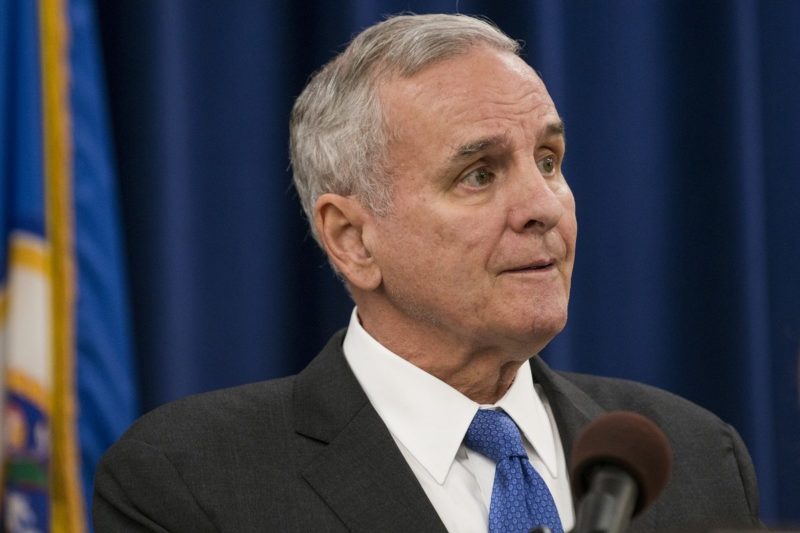Minnesota Governor Rejects GOP-Backed Wage Suppression
"Wealthy corporations and their front groups are trying to stop this movement in its tracks," said Chris Owens, executive director of the National Employment Law Project.

Minnesota Gov. Mark Dayton (D) this week vetoed a bill written to deny workers paid sick-time and quash a local campaign to lift the minimum wage to $15 per hour.
The state’s base wage is $9.50 per hour, or $19,760 annually, Dayton noted in his veto message. It’s an amount that places a family of four below the poverty line.
“People need to be making a livable wage, which is $15 per hour,” Kyanna Roland, an activist with TakeAction Minnesota, which supports the $15 minimum wage, told Rewire.
The GOP legislation, SF 3, is an example of a preemption bill, an increasingly popular big-business strategy to suppress local labor laws.
In 2016, 36 states introduced bills to preempt city ordinances, up from 29 states just a year earlier.
Minnesota Republicans advanced the preemption legislation in response to an anticipated $15 minimum wage hike in Minneapolis and paid sick-time measures passed in that city and St. Paul.
Without paid sick leave, employees “didn’t got to the doctor, they went to work sick,” Roland told Rewire. “That was a huge issue, especially in the food industry, where people would go to work sick.”
In recent years, roughly 40 U.S. cities have increased their minimum wage, and more than 30 have guaranteed paid sick days, according to the National Employment Law Project (NELP). The National League of Cities called 2016 the year of the minimum wage increase.
At the same time, legislators in two dozen states have passed laws to block these local minimum wage ordinances, while 19 states banned cities from passing sick-time laws. Republicans control 32 state legislatures, making preemption measures almost unstoppable. Dayton is one of only 16 Democratic governors in the country.
“By vetoing legislation that would have taken away Minnesota cities’ power to raise the minimum wage and guarantee paid sick leave, Governor Dayton has stood up for hard-working Minnesotans and set an example for elected leaders everywhere,” said NELP Executive Director Chris Owens in a statement.
Many preemption laws are the byproduct of copycat legislation crafted by the influential conservative lobbying group American Legislative Exchange Council (ALEC). The Koch-affiliated group, which promotes a range of austerity measures, has made suppressing higher wages and worker benefits a top priority. When NELP analyzed preemption laws between 2011 and 2013, it found lawmakers in 31 states introduced 105 bills copying ALEC’s legislation to preempt wage increases. Of the 105 measures, more than half were sponsored or co-sponsored by legislators affiliated with ALEC.
“Wealthy corporations and their front groups are trying to stop this movement in its tracks,” Owens said of the ALEC-backed effort.
Business groups have also sued to block minimum wage ballot measures, including two recent failed attempts in Arizona and New Mexico.
While ALEC and business groups typically cast wage hikes as job killers, research in communities that have lifted the minimum wage suggest that’s not the case. An Urban Institute study found raising the minimum wage in Washington, D.C., didn’t increase joblessness. Instead, employment in the food industry grew. Meanwhile, employment in surrounding areas without a minimum wage increase remained unchanged or grew more slowly. After Arizonans voted to raise the state minimum wage, the number of food-service workers in the state increased at a rate six times higher than the Arizona economy as a whole, as Capital Media Services reported.
